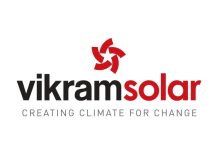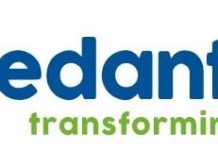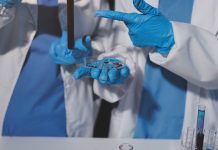In an email interaction with Chemical Industry Digest, RS Jalan, Managing Director of GHCL Ltd, speaks on how and why the company moved into textiles, fortified salts, and soda bicarb, businesses that are quite different to their traditional soda ash business. He recounts how they have grown swiftly in these new businesses, describing the structure and growth, while at the same time, consolidating and growing the soda ash business.
Chemical Industry Digest (CID): GHCL is known as a ‘heavy chemicals’ company. How did you get into textiles and what is the synergy between these two businesses? When it comes to marketing, how would the end-use consumers for textiles relate to a ‘chemicals’ named company?
RS Jalan (RSJ): GHCL was known as a heavy chemicals company till 21st November 2003 when we rechristened it as GHCL Limited. Since we had diversified into textiles, we took a conscious decision to change the “Heavy chemicals” tab.
In 2001, we had taken over the Meenakshi mills, the timing was just right, the quota regime on the textile industry was on its way out. There was a phenomenal growth opportunity in the business. As we started achieving results the team was motivated and put in their best with a renewed enthusiasm. As a result, very soon we moved into the home textile business.
Chemicals and textiles are two separate businesses. In fact, both businesses are different, with a completely distinct set of operations, business cycles, customers and marketing strategy. Our customers are completely aware of us as a diverse organization which is into chemicals, textiles and consumer products.
CID: Other than detergents and glass which are the other markets of soda ash you serve? Could you give the percentage of consumption in each end use area (detergents, glass etc)? And how do you foresee the demand growth from these sectors in the next few years?
RSJ: At the moment, almost 40% of Soda ash produced in the country is consumed by the detergent industry, 32% by glass manufacturers. Apart from this, almost 15% is used up by the chemical industry for the production of various inorganic and organic compounds, 9% for producing silicates and the rest is put to use in various other industries like nonferrous metallurgy, water treatment, mining etc. just to name a few.
Soda ash is a key industrial commodity as it serves as a raw material for various industries. Its demand is directly proportional to the growth in the economy, so if the GDP of India is growing at 7%, soda ash demand will grow at a similar pace. Apart from this, an increase in the standard of living in the country directly impacts the consumption of various products which use soda ash. For example, an increase in the consumption of detergents due to a better standard of living, or increased use of glass in construction or glass products, positively impacts the demand for soda ash.
CID: In terms of your business classification, can we say you are into chemicals, food business (soda bicarb + fortified salts) and textiles? What is the percentage share of each in your turnover and how do you foresee the growth prospects of each in the next five years?
RSJ: GHCL Ltd today is a well-diversified group with ascertained footprints in Chemicals, Textiles, and Consumer Products segment. In Chemicals, we mainly manufacture Soda Ash (Anhydrous Sodium Carbonate) and Sodium Bicarbonate. We also have a trading division which offers a variety of quality chemicals to industrial and consumer markets sourced from domestic and global chemical producers and maintains packaged and bulk inventory in our warehouses across the country, ensuring prompt delivery of the products.
Our Textiles operations is an integrated set up which commences right from spinning of fiber (yarn), weaving, dyeing, printing till the finished products, like sheets & duvets, take shape which are primarily exported worldwide. We have launched a sustainable, traceable bedding concept, christened REKOOP and are receiving encouraging response from many international retailers.
The Consumer Products division manufactures and sells edible salt, industrial grade salt and honey, spices and blended spices in the country under the brand name of I-Flo.
At the moment, the Inorganic Chemicals and Consumer Products division contribute almost 60% share of the turnover and Textiles division contributes 40%.
In the next five years, we foresee a 20% growth in bottom line on a CAGR basis. We also envision GHCL Limited to be the single largest producer of soda ash in India at one location.
CID: Since soda ash manufacture is an energy or power intensive process, in the face of rising energy costs, what steps have you taken to remain competitive? Any tweaking of the Akzo Nobel soda ash process that your process is based on? Any major achievements of your R&D? How competitive are you in your manufacturing costs, when compared to other Indian producers?
RSJ: Akzo Nobel is a patented process for making soda ash and worldwide, the process is mostly followed without much tweaking. However, innovation and process improvement is a way of life at GHCL and is a continuous process. Instead of using coke fines, we are using coke briquettes which has improved our process of calcination. This culture of continuous improvement in the process has ensured that our capacity utilization is at 97%, which is one of the highest in the industry.
We are domestically competitive when it comes to manufacturing costs and it is a regular practice to benchmark ourselves against the costs of our competitors so that we retain our edge.
CID: And how competitive are you compared to overseas competitors and also due to the very competitive mined soda ash?
RSJ: We are competitive globally as compared to other Solvay process manufacturers.
CID: What is your current capacity and any plans to further expand it? What are your other strategic plans into the future?
RSJ: In the inorganic chemicals segment, we have an existing capacity of 9.75 Lakh MT which will be increased to 11 Lakh MT by the end of the fiscal, which will then make us the single largest producer of Soda ash in India at one location.
We plan to further expand our production capacity to 12.25 lakh MT by March 2020.
CID: In terms of sustainability, environmental management, resource efficiency, etc., could you describe any measures you have taken?
RSJ: At GHCL, we believe in the principle of well being for everyone. This is in line with our core value of “respect” for individuals and environment. For us, the well being of our stakeholders especially the communities in which we operate is an integral part of business sustainability and strategy and we see this as an opportunity to add value towards promoting inclusive growth. All such interventions are undertaken under the aegis of CSR through GHCL Foundation. The foundation has identified 3 major strategic/flagship themes viz. Agriculture/Animal Husbandry, Health Care (Primary) and Education (including Vocational Training). Majority of investments of the foundation are directed towards these theme areas, while in other areas interventions are largely need based.
Our actions and approach to achieve environmental stewardship include energy and water efficiency, waste management, renewable energy and greener manufacturing processes and technologies. GHCL is driven by the spirit of innovation and is continuously focusing upon sustainable products and packaging innovations. Some examples of interventions at
GHCL highlighting our commitment towards environmental protection are outlined here:
1. Our Renewable Energy Portfolio:
25.2 MW capacity of power source (40% of requirement) from wind energy set-up in Tamil Nadu for captive use at our Spinning unit (Yarn Division)
2.1 MW capacity of power source from wind energy set-up in Vapi for our Home Textiles unit
2. Condensing turbine of capacity 12.5 MW to meet additional energy requirements while maintaining perfect steam and power balance at Sutrapada
3. Deployment of energy efficient Akzo technology for manufacture of soda ash involving dry liming technology
4. Own cogeneration plant at Sutrapada which has a capacity of producing 38.7 MW of power
5. Latest membrane based nano technology to meet requirement of water for salt dissolution with reduced purification costs
6. ‘REKOOP’-new brand of bedding products made from recycled plastic (rPET); it employs Applied DNA’s CertainT platform to trace and authenticate the plastic being utilized
7. Waste to resource – Use of industrial waste material (fly ash, limestone fines & plastic) in development of construction material e.g. of Paver blocks.

































